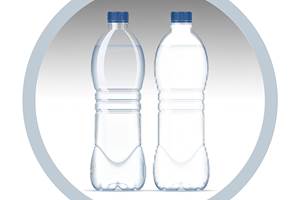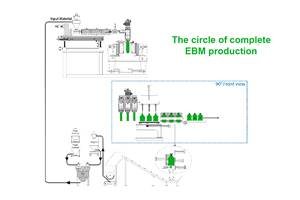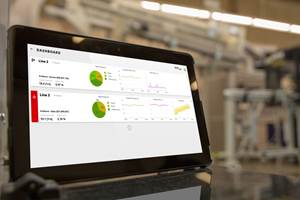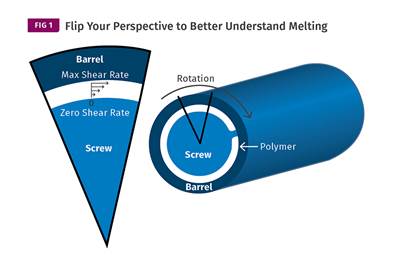Plastic Beer Bottles Are No Longer Just a Dream
Commercial success of two major foreign beer brands packaged in plastic bottles looks like the first wave in what could soon be a flood of plastic container development here and abroad. As shown in the table, at least nine plastic beer-bottle programs are commercially under way or in development.
Until now, plastic bottles have had barely a sip of the 300-billion-unit global annual consumption of beer containers in glass and aluminum. Concerts and sports events are where plastic beer bottles have enjoyed their first success due to issues of public safety. Lightweight plastic has the advantage over glass or metal of being less likely to cause injury if thrown or dropped. In addition, bottle makers say the performance gap between plastic and glass is narrowing, thanks to improved materials that provide better barrier against oxygen and carbon dioxide.
What is hailed as the world's first commercial single-serve plastic beer bottle is PET with a barrier coating of epoxy amine from PPG Industries Inc., Pittsburgh. It is molded by Continental PET Technologies Inc., Bedford, N.H., for Carlton & United Breweries Ltd. in Australia. The bottle was introduced in 1996.
Bass Brewers Ltd. of the U.K. followed in 1997 with the introduction of its Carling Black Label brand--said to be the most popular in Britain--in a single-serve plastic bottle. Both brewers plan to expand their plastic bottle programs to other brands.
As noted in the table, there were earlier plastic bottles in larger sizes, for which the barrier requirements are less stringent because of the smaller ratio of surface area to volume. Not shown in the accompanying table (based on data provided by Sidel Inc., Norcross, Ga.) is the "beer sphere," a large Japanese PET container that dates back several years.
U.S. brewers thirst for plastic
Developments abroad are spurring two of the major U.S. brewers into action. "Most breweries now are committed to getting a plastic bottle out. They are evaluating the existing technology, bottle cost, performance, [consumer] appeal, and long-term issues concerning color, recyclability, and taste," says Leland H. Carlblom, senior research associate with PPG Industries. Steve Giguere, Continental's testing and analytical services manager, expects to see a commercial project in the U.S. this year.
Proponents of plastic beer bottles are nonetheless cautious in their optimism. "I think this package will experience steady growth, but it won't displace glass or aluminum. It will be a third packaging option," says Shelley Steele, director of marketing at Schmalbach-Lubeca Plastics Containers USA Inc., Manchester, Mich.
Issues of cost and performance remain to be resolved. Domestic brewers want bottles designed for stadium events to have oxygen permeation of at most 1 ppm over 120 days, and no more than 15% loss in carbonation during that period. These requirements come close to those for glass. To meet this requirement, the bottle has to provide two to five times the barrier performance of straight PET, says Todd Eberle, v.p. of plastic technologies for Crown Cork & Seal in Philadelphia.
More hurdles for plastic
The high temperature and pressure of the commonly used tunnel pasteurization process is another tough challenge for plastic. PET becomes unstable at a typical pasteurization temperature of 172 F, says Continental business-development manager Warwick Hassan. Anheuser-Busch, Milwaukee, is testing a bottle made with more heat-resistant PEN resin. Miller Brewing Co., Milwaukee, avoids the problem by using a cold-filtering process to treat the beer. Some firms use flash pasteurization, in which the beer is treated before filling, so the bottle isn't subjected to high pressures and temperatures.
Recyclability is a potentially contentious issue stemming from the development of multi-material beer bottles. "Soft-drink firms are really nervous about the beer guys because it seems as if the brewers haven't done all of their research in determining what impact their bottles will have on the recycling stream. The soft-drink people don't want the beer guys to come in and mess it up," says one packaging consultant. He pointed to a resolution passed recently by the Los Angeles City Council expressing concern that the Miller plastic bottle being test marketed could present a threat to the existing PET recycling stream. The council focused on potential problems posed by the layers of nylon and PET, the amber color, aluminum cap, and metallized label. On the other hand, multi-layer PET bottles are already recycled in the form of ketchup bottles; and amber PET bottles show up as containers for apple juice and prune juice.
Hassan says Continental, which produces Miller's test bottles, has studied the potential impact on recycling since the beginning of the bottle program. Continental says two major recycling firms determined they could handle the PET/nylon bottle structure in their recycling processes. Continental also initiated a program to buy back the amber bottles and plans to change the type of closure.
Meanwhile, three industry groups--the American Plastics Council, the Association of Postconsumer Plastic Recyclers, and the National Association for Plastic Container Recovery (NAPCOR)--recently formed a coalition to address concerns about the recycling of plastic beer bottles.
Related Content
Mold Opaque White PET Bottles – Without Pigment
Trexel and Husky are cooperating on molding recyclable opaque white preforms for PET bottles, which provide a light barrier using foam instead of pigment.
Read MoreGet Color Changes Right In Extrusion Blow Molding
Follow these best practices to minimize loss of time, material and labor during color changes in molding containers from bottles to jerrycans. The authors explore what this means for each step of the process, from raw-material infeed to handling and reprocessing tails and trim.
Read More50 Years of Headlines … Almost
I was lucky to get an early look at many of the past half-century’s exciting developments in plastics. Here’s a selection.
Read MoreHow Inline Vision Inspection Can Minimize Scrap in Molding
Once viewed by injection and blow molders as a necessary evil, machine vision technology today can continuously monitor and improve production while reducing costs.
Read MoreRead Next
Lead the Conversation, Change the Conversation
Coverage of single-use plastics can be both misleading and demoralizing. Here are 10 tips for changing the perception of the plastics industry at your company and in your community.
Read MoreUnderstanding Melting in Single-Screw Extruders
You can better visualize the melting process by “flipping” the observation point so that the barrel appears to be turning clockwise around a stationary screw.
Read More























